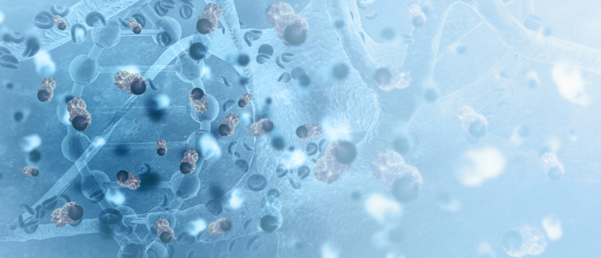
BioTechniques News
Beatrice Bowlby

Researchers have developed a new method of locally delivering cytokines alongside T cells that could lead to improved CAR-T cell therapies.
A collaborative research team from the Wyss Institute at Harvard University, the Harvard John A. Paulson School of Engineering and Applied Sciences (SEAS) and the Dana-Farber Cancer Institute (all MA, USA) presents a novel method to label T cells with cytokines. This could enable localized cytokine therapy alongside adoptive cell therapies (ACTs), such as CAR-T cell therapies. The researchers believe that this approach could improve the efficacy of immunotherapies.
CAR-T cell therapies utilize engineered T cells that have a modified chimeric antigen receptor (CAR) that binds specific tumor cells. Once multiplied outside the body, the cells are infused back into the body. The T cells then activate an immune response to kill the tumor cells. This approach is used in clinical practice to treat cancers of the blood and bone marrow but has had a limited impact for patients with solid tumors. This is due to the difficulty of penetrating the solid tumor mass, its immunosuppressive internal environment and T cells not persisting for long enough inside the tumor.
Previous research has suggested that cytokines can enhance the antitumor effect of other immune cells, including T cells. However, this has had a limited effect for ACTs as systemic treatment with cytokines causes severe – and potentially lethal – side effects. In this research, the authors present a novel method to attach tumor-specific cytokines to T cells to enable their localized delivery.
Old drug learns new tricks against small-cell lung cancer
In a mouse study telling a tale of old meets new, an experimental combination of two drugs has been found to stop the growth of small-cell lung cancer.
The research team prepared T cells with cytokines utilizing the cell’s natural sugar metabolism. They first cultured the T cells with a nanoparticle containing a reactive azido sugar so that the modified sugar was metabolically integrated into the cells’ surface sugar chains. They then introduced the desired cytokine molecule engineered with a compatible DBCO chemical group so that it attached to the T cell via the sugar.
Having assessed the effectiveness of the attachment and ensuring that it did not impact cell viability, the team assessed the particles’ efficacy in in vivo studies. The researchers first tested the approach in mice with melanoma tumors using an ACT of a subcurative dose of melanoma-specific T cells carrying the cytokine interleukin-12 (IL-12). They compared this with an ACT using the same number and type of T cells alongside a systemic injection of IL-12.
The researchers found that the ACT using T cells with attached IL-12 delayed tumor growth and prolonged lifespan by approximately 50%. They suggested that the separate T cells and IL-12 encouraged other immune cells to respond to the tumor. The team hypothesized that this effect may be led by dendritic cells.
First author Yutong Liu (Wyss Institute and SEAS) explained, “we think that our approach could enhance a tumor-specific immune cycle. First, the adoptively transferred IL-12-conjugated T cells differentiate and kill a subset of tumor cells, resulting in the release of different tumor-specific antigens that are taken up and processed by dendritic cells, which present them to other tumor-specific T cells in nearby lymph nodes that then also invade the tumors and directly contribute to tumor cell killing and the spread of yet more antigens.”
In a final step, the researchers applied their method of cytokine attachment to CAR-T cell therapy in a mouse model of lymphoma. The results showed that T cells with attached IL-12 controlled tumor growth and prolonged mouse survival at doses that couldn’t cure the animals receiving standard CAR-T cell therapy.
Senior author David Mooney (Wyss Institute and SEAS) commented, “the results that we see suggest a major step toward developing ACTs with efficacy against solid tumors and ACTs that work more consistently against a variety of blood cancers.” He added, “our approach can be easily scaled and integrated with the processes currently used to manufacture therapeutic T cells, including CAR-T cells.”
The post Could attaching cytokines to T cells enable CAR-T cell therapies for solid tumors? appeared first on BioTechniques.
Full BioTechniques Article here
Powered by WPeMatico
